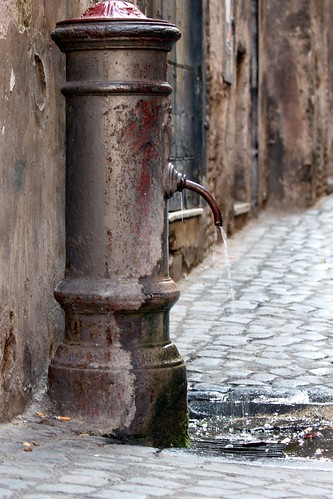If Henry Ford were alive today in the internet era of Facebook, Google and Twitter, the last thing he would do is startup another internet company. Instead he look to provide an organizing principle that would leverage and streamline business to catapult them into the next age of business development. Ford would look to streamline and enable collaborative business development to allow businesses to mass produce, in the internet environment, in the same way as he did with the assembly line for the automotive business at the start of the 20th century.
In 1913 Henry Ford caused a paradigm shift in the automotive business by leveraging the assembly line to streamline car manufacture. While Ford did not invent the assembly line, his sponsorship of its development and his use of it as an organizing principle to streamline manufacture, was central to its explosive success in the 20th century. Ford major contribution was not in the invention of anything new in terms of automotive manufacturing it was about providing an organizing principle that effectively and efficiently leveraged existing technologies in a value added manner.
Today we stand at another tipping point in terms of business evolution. After 20 years of breathtaking internet development, the internet has evolved from simple client server to collaborative social interactions. We have Amazon and eBay to buy stuff, PayPal to pay for stuff, Google to search for stuff, Twitter to tell people about stuff and Facebook to show off our stuff. These are some of the internet giants that have become household names, in the internet landscape of today. Yet impressive as these advances have been, without an organizing principle to allow business to leverage them in a collaborative and added value manner, they will remain a hodgepodge of technologies much like the automotive industry prior to the introduction of the assembly line.
A business centric organizing principle that aligns businesses to allow them to leverage and flexibly combine existing technologies and services will jetism business development into the 21th century. A business framework that will enable businesses to easily collaborate together, with their producers and consumers in a value add fashion, to enabling new business opportunities and strengthening existing ones. This business centric organizing principle is what is needed in today business landscape and will provide the kind of acceleration and enablement that Ford introduced with the assembly line.
Ford’s legacy lives with us today in every assemble line, in every business process and has being the very foundation and building blocks for business for the last 100 years. Today in a rapidly evolving business paradigm not only do we need a new business framework to organize and align business, we also need to think beyond the static and linear business processes and think more in terms of business activities that are achieved by mixing and matching business capabilities in a self optimizing network ecosystem.
A self optimizing ecosystem were business capabilities can be mixed and matched to dynamically realize business activities will allow businesses to become much agile in terms their reactions to new market opportunities and allow for the rapid evolution and realization of new business models.
All of these ideas can be applied to water and can enable a more advanced concept of cooperation, such as cooperation between businesses with the desired result of a solving a water problem. We need to provide an organizing framework that encourages private sector to build business application on top of the instrumented water systems. It helps to think of a business application such as a water meter reading application that exists in a business app store and the organizing principle as organizational categories within the app store. These applications need to be cloud enabled so that we can access them from anywhere. Finally we need to figure a way to allow these business applications to collaborate and cooperate together to achieve some common goal.
We are really just beginning to figure out the smarts and the math behind cloud enabled application cooperation, but a good place to start is with game theory. Game theory is the brain child of a mathematician called John von Neumann and was born in the shadow of the US/USSR nuclear arms race when the super powers were thinking to outthink each other in the face of mutually assured destruction. But game theory can also be applied to the problem of cooperation and collaboration between water related business application produced by different parties to come to achieve a mutually beneficial outcome. We will return to these ideas in future posts.





